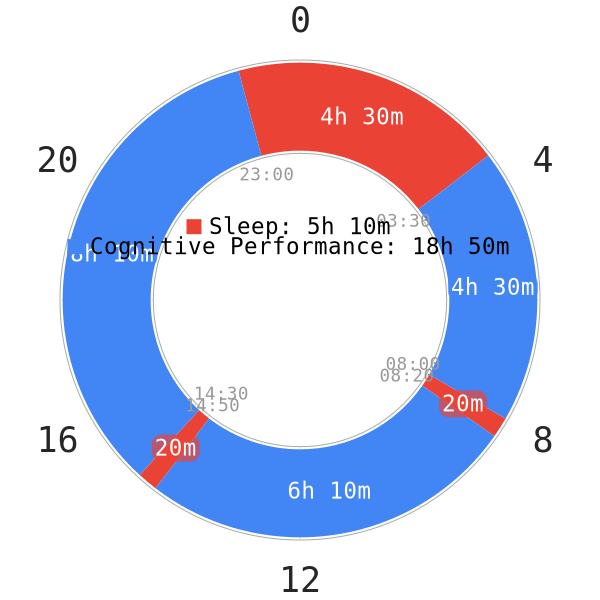Introduction
The community has decided to start conducting experiments because of the lack of peer-reviewed research about polyphasic sleep. Small-scale tests with electroencephalograms started during 2017. Additionally, large-scale tests loomed on the horizon throughout 2018.
The gathering of information is still ongoing; thus, the purpose of this page is to share the findings and inform people of ongoing and future tests.
Polyphasic Surveys
Below are the current and past polyphasic survey analyses. If you want to complete the most recent polyphasic survey yourself, you can do so by following its link respectively.
Polysurvey 2018 results and analysis
Sleep deprivation of polyphasic sleepers after adaptation
The point of this group of experiments is to determine whether polyphasic sleepers who claim to be adapted actually get the quality sleep they need. This would be critical to conclude if they show any symptoms of sleep deprivation. Moreover, adapted sleepers are supposed to perform cognitively well on a very consistent basis.

Amounts of REM sleep and SWS (in-progress)
Hormonal levels after adaptation (in-progress)
Sleep onset outside of the schedule (in-progress)
Cognitive performance (in-progress)
Sleep architecture
We list experiments concerning sleep in general here.
Flexing sleep (in-progress)
Cycle compression (in-progress)
Statistically likely REM period (in-progress)
Substances
There is a lot of research regarding how different substances affect sleep; however, there is no peer-reviewed research on the effects of these substances on polyphasic sleep schedules. What we want from these experiments is especially the effects the substances can have on SOREM naps, sleep architecture, total REM sleep and SWS durations, etc.
Caffeine (in-progress)
Nicotine (in-progress)
Alcohol (in-progress)
Cannabis (in-progress)
Fat (in-progress)
Vitamin C (in-progress)
Vitamin D (in-progress)
Lifestyle
Tests regarding lifestyle and activities go here. Although there has been some data, it is not enough to draw solid conclusions. In fact, our most pressing concern is the usage of the dark period.
Meditation (in-progress)
White noise (in-progress)
Binaural beats (in-progress)
Dark period (in-progress)
Main author: Crimson
Page last updated: 8 April 2021
